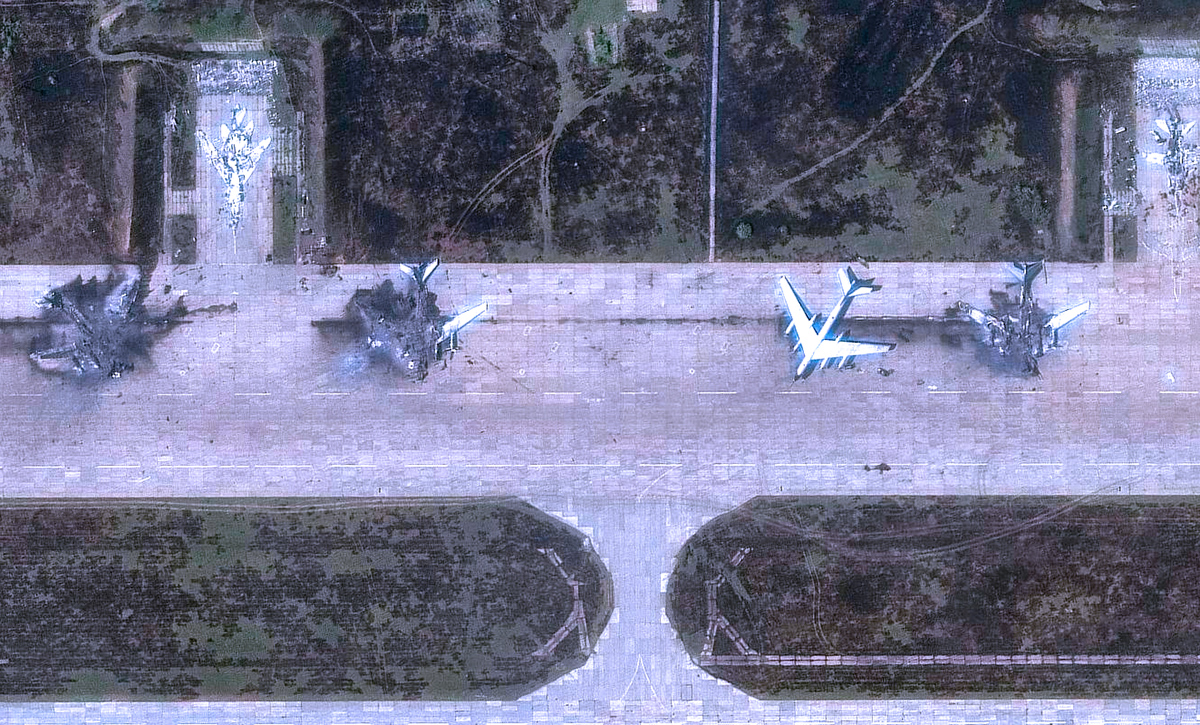Operation Spiderweb: How Ukraine Turned Criminal Tactics into Drone Strikes Against Russia

The architects of Ukraine's Operation Spiderweb drew on their experience in combating international crime to plan a complex drone smuggling operation into Russia.
The Gaze reports on it, referring to Business Insider.
Vasyl Malyuk, head of the Security Service of Ukraine (SSU), revealed details of the operation and hinted at similarities with previous covert strikes.
According to him, during the operation, hundreds of military quadcopters were secretly transported deep behind Russian lines. The drones were transported in wooden structures resembling houses, mounted on trucks, which were delivered to airbases for launch.
Malyuk explained the logistics as follows: “I should note that we drew on our experience in fighting transnational crime, when we studied in detail how international drug cartels secretly deliver various prohibited substances to different corners of the world without detection by customs and border authorities.”
The head of the SSU also hinted at a previous operation that Ukraine carried out in October 2022 against the Crimean Bridge.
He emphasized that in both cases, Ukraine did not involve smugglers, but exploited weaknesses in Russia's customs control system, “who are, by their nature, very corrupt." "At a certain stage, they actually played to our advantage in delivering the cabins I mentioned,” Malyuk said.
Vasyl Malyuk stated that for Operation Spiderweb, Ukraine, through its agents in Russia, created a fictitious logistics company that purchased five vehicles and rented warehouses to prepare for the delivery of drones. One of these warehouses was even located in the same city block as the Federal Security Service of the Russian Federation (FSB) headquarters in the Chelyabinsk region.
Malyuk explained that the company hired Russian citizens as truck drivers, sending them on regular deliveries to avoid suspicion. The drivers themselves were kept in the dark, he said, adding that when one of them accidentally saw the drones inside the cabs, agents explained that they were tools for observing animals.
According to him, the team intended to launch the attack back in May, but faced a number of delays, in particular because the drivers got drunk during the Easter holidays.
Each truck cab contained solar panels and a battery to keep the drones charged and ready for deployment even in cold weather; the quadcopters could be launched at temperatures as low as 43 degrees Celsius. But at the same time, this created additional difficulties for them in Russia, as it is under sanctions, Malyuk explained.
He also noted that the team went through “seven circles of hell” during the preparation of the operation, and the strike drones were specially designed for “Spiderweb” and are capable of carrying a payload weighing 1.6 kg.
Watch Jake Broe, a United States Air Force veteran, explain how Operation “Spiderweb” is crippling Russia’s strategic capabilities on The Gaze: “Spiderweb” has RUINED Russia’s war and defence capabilities – Jake Broe